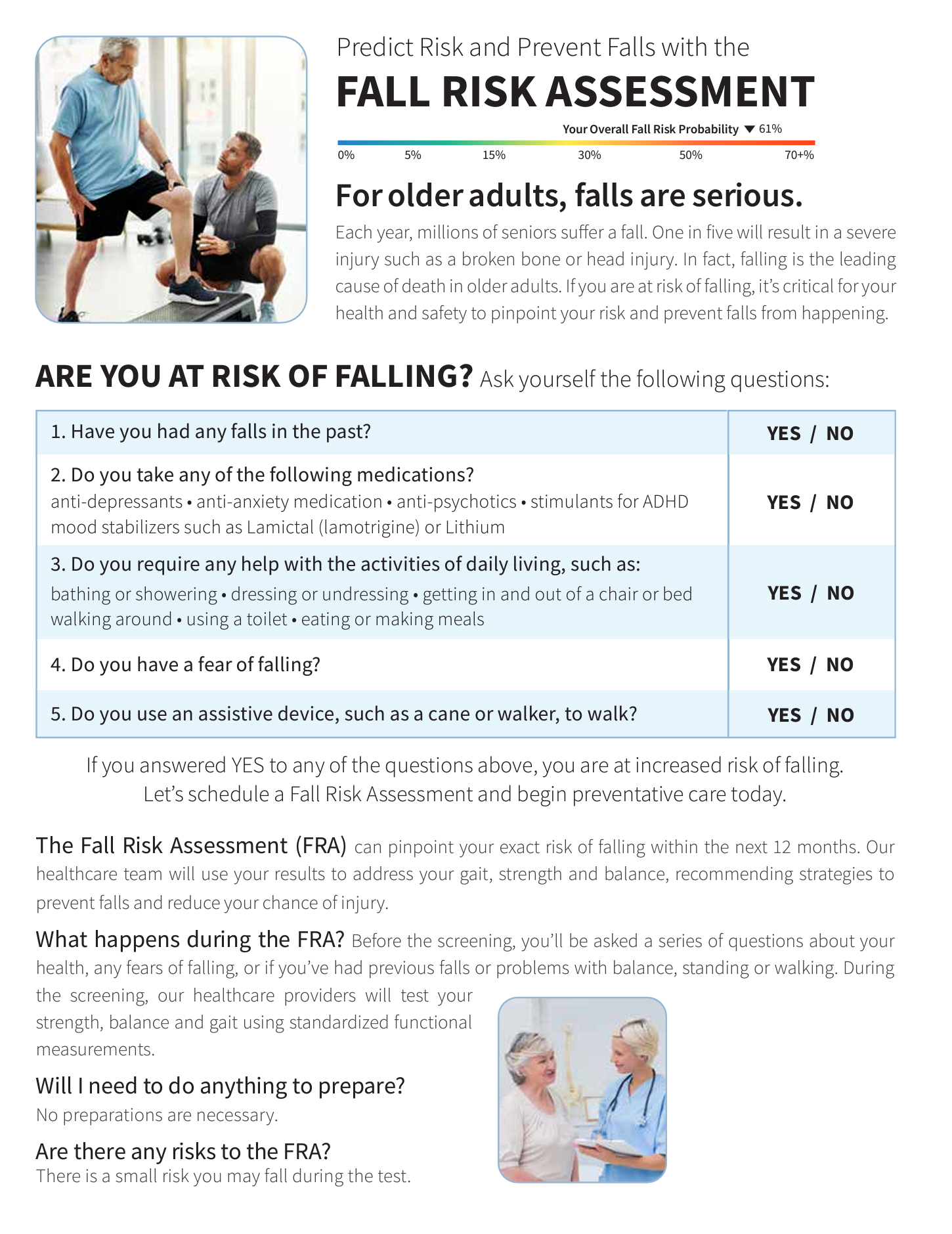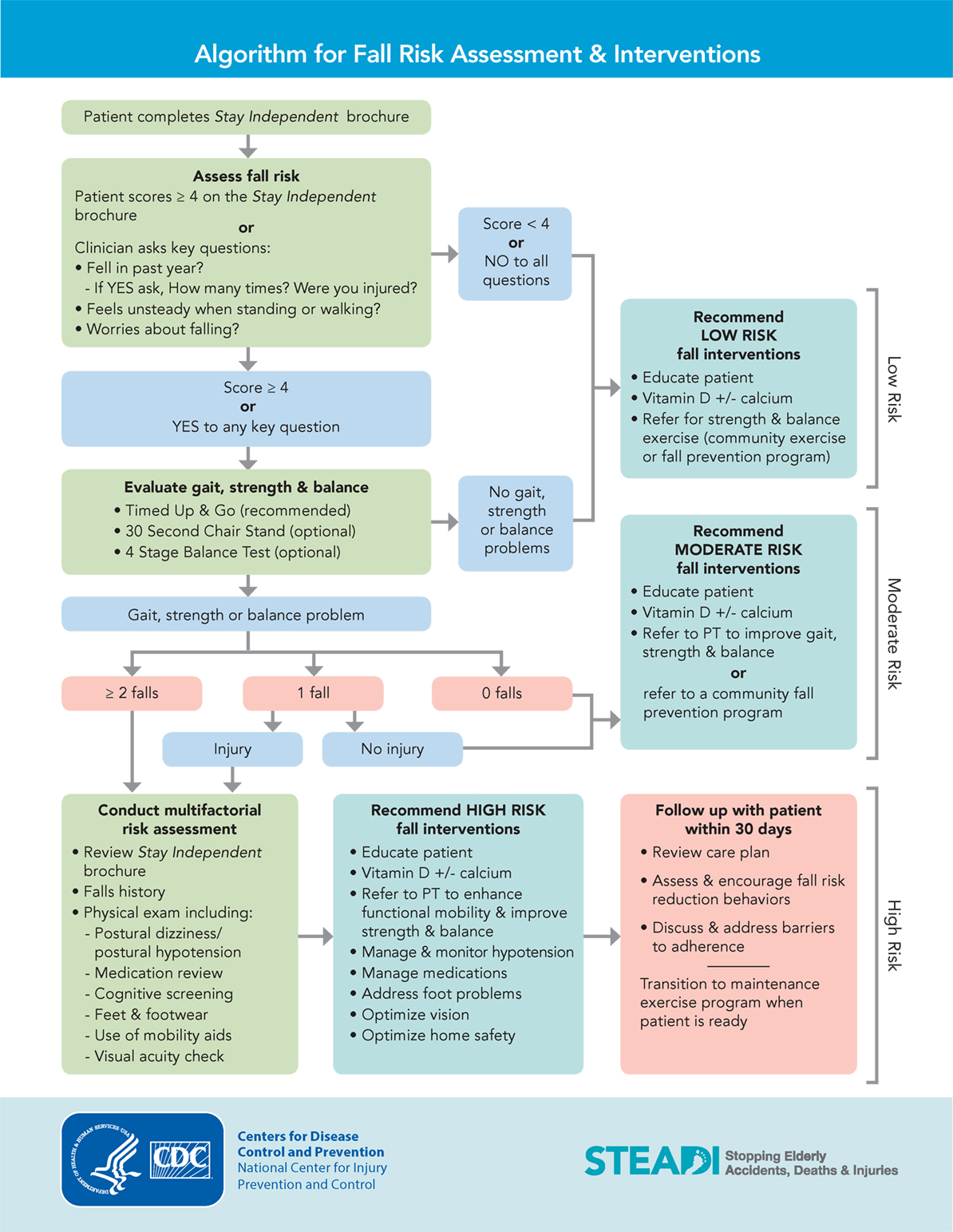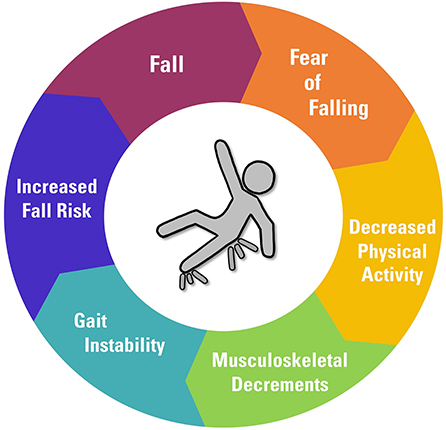Dementia Fall Risk for Beginners
Dementia Fall Risk for Beginners
Blog Article
Dementia Fall Risk - The Facts
Table of ContentsExamine This Report on Dementia Fall RiskAbout Dementia Fall RiskThe 6-Second Trick For Dementia Fall RiskDementia Fall Risk Fundamentals ExplainedUnknown Facts About Dementia Fall Risk
Guarantee that there is an assigned area in your medical charting system where staff can document/reference ratings and document relevant notes related to drop prevention. The Johns Hopkins Fall Risk Analysis Tool is one of numerous tools your team can make use of to assist avoid negative clinical events.Patient falls in medical facilities prevail and debilitating adverse occasions that continue despite years of effort to minimize them. Improving interaction across the analyzing nurse, care team, person, and individual's most entailed family and friends may reinforce autumn prevention initiatives. A group at Brigham and Female's Health center in Boston, Massachusetts, sought to develop a standard autumn avoidance program that centered around boosted communication and patient and household involvement.

The development team emphasized that successful execution relies on individual and team buy-in, combination of the program into existing workflows, and integrity to program processes. The group noted that they are facing how to ensure continuity in program implementation throughout durations of crisis. Throughout the COVID-19 pandemic, for instance, a rise in inpatient drops was related to restrictions in patient involvement along with restrictions on visitation.
Dementia Fall Risk for Beginners
These occurrences are typically thought about avoidable. To implement the treatment, organizations need the following: Access to Loss ideas sources Loss pointers training and re-training for nursing and non-nursing staff, consisting of brand-new nurses Nursing workflows that permit patient and household involvement to carry out the falls analysis, guarantee usage of the prevention plan, and conduct patient-level audits.
The results can be extremely destructive, typically speeding up patient decrease and creating longer health center stays. One research approximated stays boosted an additional 12 in-patient days after a person fall. The Autumn TIPS Program is based upon engaging individuals and their family/loved ones across 3 major processes: assessment, personalized preventative treatments, and bookkeeping to guarantee that individuals are participated in the three-step fall prevention procedure.
The patient evaluation is based upon the Morse Fall Scale, which is a verified fall risk assessment device for in-patient hospital settings. The scale includes the six most usual reasons individuals in hospitals fall: the patient autumn background, risky problems (consisting of polypharmacy), usage of IVs and various other external devices, mental status, gait, and mobility.
Each threat variable links with several workable evidence-based interventions. The registered nurse develops a plan that includes the treatments and is noticeable to the care team, client, and household on a laminated poster or printed visual aid. Nurses develop the plan while meeting the patient and the client's household.
All About Dementia Fall Risk
The poster serves as an interaction device with other members of the person's care team. Dementia Fall Risk. The audit component of the program includes assessing the person's understanding of their risk variables and avoidance plan at the device and health center degrees. Nurse champs perform at the very least 5 individual interviews a month with people and their families to inspect for understanding of the autumn avoidance plan

An approximated 30% of these drops lead to injuries, which can vary in severity. Unlike various other negative events that require a standardized professional feedback, loss avoidance depends highly on the needs of the patient. Consisting of the input of people who understand the person ideal allows for higher modification. Going Here This technique has actually shown to be more effective than autumn avoidance programs that are based mostly on the manufacturing of a risk score and/or are not personalized.
The Definitive Guide for Dementia Fall Risk

Based upon bookkeeping results, one website had 86% compliance and 2 websites had more than 95% compliance. A cost-benefit evaluation of the Fall TIPS program in 8 healthcare facilities approximated that the program cost $0.88 per individual to execute and resulted in cost savings of $8,500 per 1000 patient-days in straight costs associated with the avoidance of 567 tips over 3 years and 8 months.
According to the advancement group, companies curious about implementing the program ought to conduct a preparedness assessment and drops prevention voids evaluation. 8 Furthermore, companies must guarantee the essential framework and operations for execution and develop an application plan. If one exists, the company's Loss Avoidance Job Pressure must be involved in planning.
What Does Dementia Fall Risk Mean?
To begin, organizations ought to guarantee completion of training components by registered nurses and nursing assistants - Dementia Fall Risk. Healthcare facility team must assess, based upon the demands of a hospital, whether to make use of a digital health document hard copy or paper variation of the loss Clicking Here prevention plan. Implementing groups should recruit and educate registered nurse champs and establish procedures for bookkeeping and coverage on loss information
Team need to be included in the process of revamping the operations to involve individuals and family in the assessment and prevention plan process. Systems ought to be in place so that units can understand why a fall took place and remediate the cause. Much more particularly, nurses must have channels to offer ongoing feedback to both staff and system leadership so they can readjust and enhance autumn prevention workflows and interact systemic problems.
Report this page